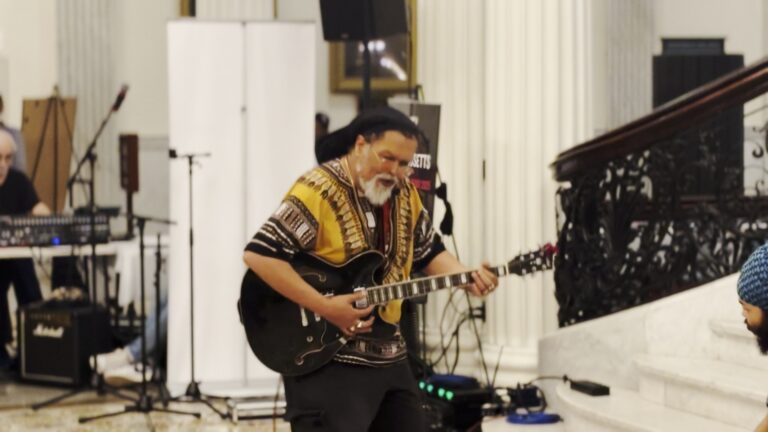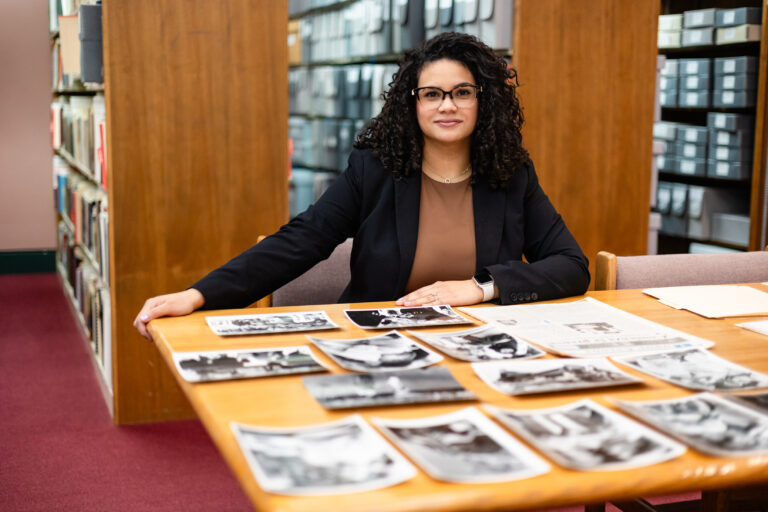The humanities are essential for understanding our democracy.
Through a special grant opportunity for 2020, Mass Humanities is proud to announce “The Vote,” a statewide conversation about the past, present and future of voting rights.
“The Vote” commemorates the centennial of the 19th Amendment through grants to 17 Massachusetts organizations, funded as part of the Fall 2019 Project Grant and the Winter 2019 Discussion Grant. Through public events, workshops for educators, museum exhibitions and new research, “The Vote” provides Massachusetts residents with free opportunities to consider issues including women’s suffrage, the Civil Rights movement, voter suppression, civics education, and teen voting.
Click here to see the list of upcoming “The Vote” events and video recordings of past events.

“The Vote” Grantees for 2020
Northeastern Massachusetts
- $3,610 to Cape Ann Museum in Gloucester for public programming centered around “Our Souls Are by Nature Equal to Yours – The Life and Legacy of Judith Sargent Murray”, who was an early advocate for women’s equality. Scholars will speak in conjunction with the exhibit, and the museum will hold discussion groups based on her biography along with daily, docent-led tours January until April.
- $7,521 to the University of Massachusetts Lowell and the Tsongas Industrial History Center for “Every Voice Counts: Equipping Educators to Teach Civics”, a series of six online teacher professional development workshops highlighting local communities’ struggles for political representation.
- $8,360 to the Reading Public Library for “The Vote: Exploring Voting Rights in America”. The library will explore voting rights in America through multiple community events, lectures and performances, facilitated discussions and book groups, documentary screenings, hands-on projects and performances.
- $3000 to North Shore Juneteenth Association in Lynn for “Why Vote? Hat and Heels High Tea”, a lecture and discussion event with Civil Rights activist and author Rodney Hurst and legal scholar David Harris at the Lynn Museum.
- $3500 to North Shore Community Development Coalition in Salem for “Why Your Vote Matters Forum” for a discussion of voting rights and experiences with voting, focusing on past and present immigrant communities with residents of The Point neighborhood in Salem.
Metrowest Boston
- $7,550 to the Robert Treat Paine Historical Trust in Waltham for “Partners in Protest: Massachusetts Working Women and their Struggle for the Vote”. Humanities scholars will help create a classroom resource kit for 8th grade Waltham civics classes on suffrage and labor movements in their city.
- $14,878 to Primary Source in Watertown for “Our Rights & Nothing Less: Struggles to Secure the Vote in the United States”, a professional development series for K-12 social studies teachers along with a seminar and webinar on historical and contemporary challenges to expanding and protecting voting rights in the U.S. through a humanities lens.
- $14,983 to Tempest Productions in Brookline for “Soapbox Suffragists: Votes for Women and the Fight for Voting Rights 1900-2020 and Beyond” which includes a living history performance of suffragists in conjunction with centennial events in Boston, New Bedford, Pittsfield, and Roxbury.
Southeastern Massachusetts
- $12,030 the Brockton Public Library for “The Vote: A Divided Movement that Brings Us Together”, for a free series on the history of voting rights including panel discussions, a traveling exhibit, workshops, and an outdoor installation highlighting Brockton residents involved in the suffrage movement.
- $14,997 to the YWCA Southeastern MA for “Lighting the Way from Suffrage to Civic Engagement”, a three-part series with two panel discussions on voting rights and a youth artist showcase inspired the history of New Bedford.
Boston
- $15,000 to the John Fitzgerald Kennedy Library Foundation in Boston for “Expanding Democracy: The 19th Amendment and Voting Rights Today”. The event includes a special half-day conference featuring three forums on the history and current relevance of the suffrage movement.
- $15,000 to BCN Productions in Boston for the costs in the distribution phase of “Borderland- The Life and Times of Blanche Ames-Ames”, a film about the suffrage activist with curriculum guide development and scholar screenings planned.
- $3,500 to Boston Review for “Women’s Right to Be Elected”, a panel discussion on the political theories and practical differences between the right to vote and the right to be elected, comparing the US with countries where more women hold elected office.
- $3000 to YWCA Cambridge for “Voting Rights, Women’s Suffrage and Fannie Lou Hamer”, two discussions with Billie Jean Young, creator of a one woman show on labor and civil rights activist Fannie Lou Hamer.
Cape & Cape Islands
- $2500 to the Falmouth Historical Society for “Gaining the Vote: The Road to Women’s Suffrage”, lectures with historians and authors on the history of women’s political participation.
Western Massachusetts
- $15,000 to the Osher Lifelong Learning Institute, Berkshire Community College in Pittsfield for “The Right to Vote: The Fight for Women’s Suffrage 1848-1920 University Day”, a day-long program for multigenerational audiences, featuring panels, performances, and an exhibit on women’s suffrage.
- $3,500 to Forbes Library, Northampton for “The Right to Vote: Past, Present, Future”, four panel/discussion events on four aspects of voting: women’s suffrage, civil rights movement, current barriers to voting, and teen voting.
About the 19th Amendment

The 19th Amendment to the U.S. Constitution declared that the right to vote could not be denied on the basis of a person’s sex. Ratified in 1920, it marked a major victory in the women’s movement by extending the vote to women.
But with racism and xenophobia on the rise in the late nineteenth and early twentieth centuries, many women of color, like their menfolk, could still not vote. Poll taxes and literacy tests effectively barred many African Americans from voting, especially in the South, and Native Americans in 1920 could gain the right to vote only by severing their ties to their tribes. Many states had passed laws making it illegal for noncitizens to vote, and Chinese Americans were barred from citizenship. Clearly the ratification of the 19th Amendment represents a complicated moment in our nation’s history, one that warrants thoughtful reflection on how to commemorate it.
The year 2020 arrives at another pivotal period in our nation’s electoral history. Some states are considering extending the franchise to felons and younger teens, while others have increased the hurdles to voting. As voting rights, voter fraud, and electoral security are being debated across the country, the humanities offer essential resources for deepening our understanding of this moment.
Support for “The Vote”
Funding for The Vote grant initiative comes from the National Endowment for the Humanities and the Massachusetts Cultural Council, and from individuals including the following:
Funding for The Vote grant initiative comes from the National Endowment for the Humanities and the Massachusetts Cultural Council, and from individuals including the following:
Al and Sally Griggs
Lia and William Poorvu
Jack and Joan Regan
Gail Reimer
Laura B. Roberts and Ed Belove
Before “The Vote”

“The Vote” marks the latest effort by Mass Humanities’ to commemorate the 19th Amendment.
Until 1999, all of the many works of art displayed in the Commonwealth’s most important public building depicted men, and white men at that.
In 1995, sparked by the 75th anniversary of the 19th amendment, the Massachusetts State Senate asked Mass Humanities to coordinate the Statehouse Women’s Leadership Project. An advisory committee formed to create “Hear Us,” a monument to six women who contribute to the government of the Commonwealth.
Today, visitors to the State House can stop just outside Doric Hall to see the bronze busts of Dorthea Dix, Lucy Stone, Sarah Parker Remond, Josephine St. Peirre Ruffin, Mary Kenney O’Sullivan, and Florence Luscomb. As part of the initiative, Mass Humanities also created educator tools and a brochure about the women portrayed in “Hear Us.”




